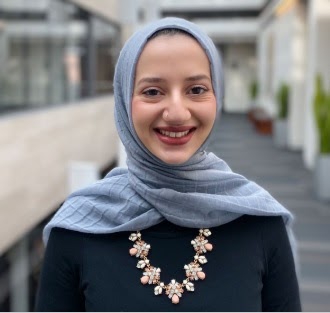Welcome to The Chicagoland Evaluation Association Week on AEA365! This week’s postings reflect the diversity of our Local Affiliate members and their work, using a lens of cultural responsiveness evaluation with various types of communities. We are excited to share some of our projects along with lessons learned, hot tips, and rad resources from our projects.
–Casey Solomon-Filer, Vice President, and Asma Ali, Past- President


Hello! We are Yasmeen Khayr of the Center for Urban Research and Learning (CURL) at Loyola University Chicago and Asma Ali of AA & Associates, LLC in Chicago. As Muslim evaluators and researchers, we have worked with Muslim-centered organizations and communities utilizing an intersectional, gender-informed, and culturally-responsive approach to community-driven evaluation.
Lessons Learned
Our work with Muslim women-led organizations, such as KARAMAH and HEART, has encouraged us to reflect on what it means to conduct evaluations by and with Muslim women, and the culturally nuanced strengths and challenges facing Muslim communities. Below we share lessons learned and considerations in conducting culturally-responsive evaluation with Muslim communities centering cultural humility, gender-informed inquiry, allyship, and growth.
- Cultural responsiveness and cultural humility is more than just language access. To be culturally responsive to Muslim communities means to understand the diversity of American Muslim communities across languages, racial-ethnic groups, religious sects, cultural traditions, and religious practices. Taking time to identify and understand the demographic and cultural contexts of a specific Muslim community will inform questions and evaluation approaches that invite honesty and trust into the partnership.
- Evaluators must be sensitive to changing notions of women’s roles and leadership in Muslim organizations and society. Gender-informed and feminist evaluation may present differently in Muslim communities than in traditional Western cultures. Muslim women-centered organizations may emphasize cultural traditions and religious teachings. Some organizations may support more traditional interpretations of Islamic teachings in their work and leadership, while others opt for new leadership.
- Evaluators must confront their assumptions about Muslim communities. As Muslims working with our communities, we have experiences and assumptions that both facilitate and impede evaluation. Despite our access to and shared experiences with Muslim communities, we have a responsibility to decenter our personal assumptions when working with other Muslims. Non-Muslims working in Muslim spaces should identify and challenge their held stereotypes or biases to learn and reciprocate trust from the Muslims participants. Working with HEART, this often looked like listening and believing survivors in their experiences without judging how they did or did not seek resources or support within and beyond their communities.
- Understanding the forms of Islamophobia and their consequences. Islamophobia continues to be a real beast disrupting the growth of Muslim communities, and it is essential to identify, ask questions, and integrate measures around Islamophobia when working with Muslims. This also includes understanding the impacts and barriers that face Muslims due to internalized Islamophobia and gendered Islamophobia.
- Honoring inclusivity within Muslim communities. With the diversity of Muslim communities comes a responsibilityfor both Muslim and non-Muslim evaluators to actively engage with diverse Muslims. It is bringing intentionality into recruitment and outreach, into the questions asked in evaluation tools, who we are building relationships with, and which experiences we are centering. Often we rely on “mainstream” Muslim organizations and mosques but struggle to reach Black Muslims, Queer Muslims, Muslims with varying socioeconomic statuses, and Muslims of various sects. Representative methodology requires an intentional effort to seek out and build relationships with Muslims who are often excluded from Muslim spaces. This may include further education to understand Muslim perspectives, and to confront anti-Blackness, homophobia, and other biases that exist within and beyond Muslim communities.
Rad Resources
Below are resources and organizations to further engage with Muslim communities:
- KARAMAH Research Articles and Case Studies Impacting Muslims
- HEART: Creating Victim-Centric Spaces for Muslim Survivors of Sexual Assault on College Campuses
- Partnership to End Gendered Islamophobia: Community Report
- Connect with Inner-City Muslim Action Network (IMAN) to support Chicago Muslims
- Psychological research with Muslim Americans in the age of Islamophobia: Trends, challenges, and recommendations (Amer & Bagasra, 2013).
The American Evaluation Association is hosting Chicagoland Evaluation Association (CEA) Affiliate Week. The contributions all this week to AEA365 come from CEA members. Do you have questions, concerns, kudos, or content to extend this AEA365 contribution? Please add them in the comments section for this post on the AEA365 webpage so that we may enrich our community of practice. Would you like to submit an AEA365 Tip? Please send a note of interest to AEA365@eval.org. AEA365 is sponsored by the American Evaluation Association and provides a Tip-a-Day by and for evaluators. The views and opinions expressed on the AEA365 blog are solely those of the original authors and other contributors. These views and opinions do not necessarily represent those of the American Evaluation Association, and/or any/all contributors to this site.
